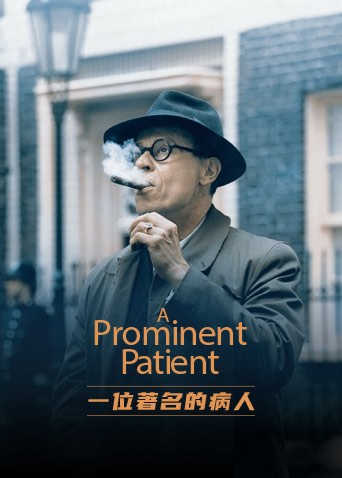大委与靓丽的医院护士、甜心酷爱唱歌的丁雯处于似明似暗的恋爱中。为了实现丁雯当歌手的梦想,甜心大委和他的一帮朋友倾情相助,一起组建了乐队。过程中他们历经重重坎坷,却怀揣梦想不愿放弃,可这时丁雯却要出国深造学习……他们最终能否走到一起呢?
大委与靓丽的医院护士、甜心酷爱唱歌的丁雯处于似明似暗的恋爱中。为了实现丁雯当歌手的梦想,甜心大委和他的一帮朋友倾情相助,一起组建了乐队。过程中他们历经重重坎坷,却怀揣梦想不愿放弃,可这时丁雯却要出国深造学习……他们最终能否走到一起呢?

回复 :Somewhere in the remote region, the war ends. In the midst of ruined cities and houses in the streets, in rural hamlets, everywhere where people still live, are children who have lost their homes and parents. Abandoned, hungry, and in rags, defenseless and humiliated, they wander through the world. Hunger drives them. Little streams of orphans merge into a river which rushes forward and submerges everything in its path. The children do not know any feeling; they know only the world of their enemies. They fight, steal, struggle for a mouthful of food, and violence is merely a means to get it. A gang led by Cahoun finds a refuge in an abandoned castle and encounters an old composer who has voluntarily retired into solitude from a world of hatred, treason, and crime. How can they find a common ground, how can they become mutual friends? The castle becomes their hiding place but possibly it will also be their first home which they may organize and must defend. But even for this, the price will be very high.To this simple story, the journalist, writer, poet, scriptwriter, movie director, and film theoretician Béla Balázs applied many years of experience. He and the director Géza Radványi created a work which opened a new postwar chapter in Hungarian film. Surprisingly, this film has not lost any of its impact over the years, especially on a profound philosophical level. That is to say, it is not merely a movie about war; it is not important in what location and in what period of time it takes place. It is a story outside of time about the joyless fate of children who pay dearly for the cruel war games of adults.At the time it was premiered, the movie was enthusiastically received by the critics. The main roles were taken by streetwise boys of a children's group who created their roles improvisationally in close contact with a few professional actors, and in the children's acting their own fresh experience of war's turmoil appears to be reflected. At the same time, their performance fits admirably into the mosaic of a very complex movie language. Balázs's influence revealed itself, above all, in the introductory sequences: an air raid on an amusement park, seen in a montage of dramatic situations evoking the last spasms of war, where, undoubtedly, we discern the influence of classical Soviet cinematography. Shooting, the boy's escape, the locomotive's wheels, the shadows of soldiers with submachine guns, the sound of a whistle—the images are linked together in abrupt sequences in which varying shots and expressive sharp sounds are emphasized. A perfectly planned screenplay avoided all elements of sentimentality, time-worn stereotypes of wronged children, romanticism and cheap simplification. The authors succeeded in bridging the perilous dramatic abyss of the metamorphosis of a children's community. Their telling of the story (the scene of pillaging, the assault on the castle, etc) independently introduced some neorealist elements which, at that time, were being propagated in Italy by De Sica, Rossellini, and other film artists. The rebukes of contemporary critics, who called attention to "formalism for its own sake" have been forgotten. The masterly art of cameraman Barnabás Hegyi gives vitality to the poetic images. His angle shots of the children, his composition of scenes in the castle interior, are a living document of the times, and underline the atmosphere and the characters of the protagonists. The success of the picture was also enhanced by the musical art of composer Dénes Buday who, in tense situations, inserted the theme of the Marseilaise into the movie's structure, as a motive of community unification, as an expression of friendship and the possibility of understanding.Valahol Europaban is the first significant postwar Hungarian film. It originated in a relaxed atmosphere, replete with joy and euphoria, and it includes these elements in order to demonstrate the strength of humanism, tolerance, and friendship. It represents a general condemnation of war anywhere in the world, in any form.
回复 :鲁斯(菲丽希缇·琼斯 Felicity Jones 饰)渴望成为一名律师,并且凭借着自己的努力考上了哈佛大学的法学院。在法学院里,鲁斯因为身为女性而遭到了来自各方面的歧视和压力,只有他的丈夫马丁(艾米·汉莫 Armie Hammer 饰)坚定的支持着妻子的选择,因为他明白,鲁斯充满了天赋和正义感。马丁被查出患上了癌症,病愈之后,他带着孩子们前往纽约工作。为了能够和自己的家人们生活在一起,鲁斯向学校提出希望能够转去哥伦比亚大学完成学业,却被拒绝了。之后,鲁斯离开了哈佛,成为了罗格斯大学的法学教授,可即便她是这样的优秀,依然没有律师行肯聘用她,只因为她是一个女人。
回复 :出身贫寒的戴茜·克洛弗(娜塔莉·伍德 饰)心怀明星梦,终于有一天受到制作人雷蒙德·斯万(克里斯托弗·普卢默 饰)的赏识如愿以偿进入演艺圈,但公司不仅将其精神失常的母亲关进疯人院,还要其伪装成一个她不喜欢的乖乖少女形象。正当她沮丧不已意志消沉之时,韦德·刘易斯(罗伯特·雷德福 饰)出现在她面前,俩人迅速成为好友关系日渐亲密,最终一起走入婚姻的殿堂。在蜜月之旅中,戴茜全心全意地沉浸在新婚的喜悦之中,韦德却忽然消失了。


